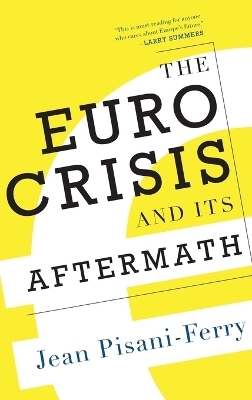
The Euro Crisis and Its Aftermath
Oxford University Press Inc (Verlag)
978-0-19-999333-8 (ISBN)
The euro's life, while only slightly more than a decade long, has been riddled by a series of challenges and crises. The disparity between the prosperous Northern countries of Germany and France and the plummeting Southern countries, including Italy and Greece, has exacerbated problems within the political and economic union of the Eurozone. The North, especially Germany, has debated where to draw the line between doing whatever is necessary to save the common currency and what they have viewed as a charity bailout of countries who flouted the rules for a decade and suffered predictable consequences. Meanwhile, Southern countries such as Italy, Spain, and Greece have grown increasingly bitter at the patronizing attitudes of their partners to the North. Amidst loud and frequent debates, solutions including routes for increased integration and punitive policies and reforms have been enacted and discarded to a limited degree of success. The struggles facing this monetary union continue to develop even today.
The Euro Crisis and Its Aftermath was written to inform readers about the history of this enduring European crisis and the alternative proposals for ending it. In four parts, Jean Pisani-Ferry explains the origins of the European currency, the build-up of imbalances and oversights that led to the crisis, the choices European policymakers have both addressed and ignored since 2010, and the evolution of the policy agenda and possible options for the future. The book is as much of an informative and analytical history as it is a prescriptive solution for a more prosperous future world economy.
Rather than putting forth and supporting a thesis, Pisani-Ferry helps readers understand the past and present of the euro crisis and form their own opinions about potential solutions.
Jean Pisani-Ferry is Professor of Economics and Public Management at the Hertie School of Governance in Berlin, and Commissionar-General for Strategy for the Prime Minister of France. Until May 2013 he was the director of Bruegel, the Brussels-based economic think tank he contributed to founding in 2005.
Acknowledgements ; Introduction ; PART 1: BARE-BONES UTOPIA ; 1. The day the euro ceased to be boring ; 2. The last utopia of the century ; 3. The walls of Frankfurt ; 4. Only one bed for two dreams ; 5. The orphan currency ; PART 2: CRISES FORETOLD, UNEXPECTED CRISES ; 6. Germany's long penance ; 7. The perfect culprit ; 8. The golden decade ; 9. The misfits ; 10. The dogs that did not bark ; PART 3: AGONIES OF CHOICE ; 11. To help or not to help ; 12. Let the banks pay? ; 13. A lender of last resort? ; 14. Redemption through austerity? ; 15. Let's break it up? ; PART 4: THE REPAIR AGENDA ; 16. Fixing the economy ; 17. Sharing financial risk ; 18. A real or a mock budget? ; 19. A European safe asset ; 20. Governance reform ; Conclusions ; Glossary ; Euro crisis timeline ; Selected references
| Verlagsort | New York |
|---|---|
| Sprache | englisch |
| Maße | 239 x 163 mm |
| Gewicht | 440 g |
| Themenwelt | Geschichte ► Teilgebiete der Geschichte ► Wirtschaftsgeschichte |
| Sozialwissenschaften ► Politik / Verwaltung ► Staat / Verwaltung | |
| Wirtschaft ► Volkswirtschaftslehre ► Finanzwissenschaft | |
| Wirtschaft ► Volkswirtschaftslehre ► Makroökonomie | |
| Wirtschaft ► Volkswirtschaftslehre ► Wirtschaftspolitik | |
| ISBN-10 | 0-19-999333-5 / 0199993335 |
| ISBN-13 | 978-0-19-999333-8 / 9780199993338 |
| Zustand | Neuware |
| Haben Sie eine Frage zum Produkt? |
aus dem Bereich


